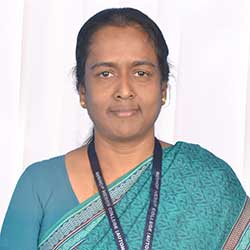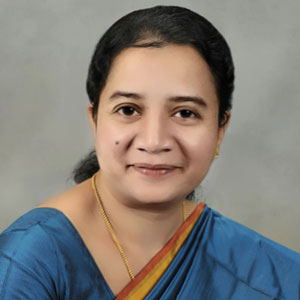Formerly called the CALL Program (Computer Assisted Language Lab) was instituted in 2006 to impart knowledge of English language and the necessary skills through computer assisted instruction for the students of Heber. Subsequently, in the recent times, the CALL Program came to be identified as CENTRE FOR LANGUAGE EMPOWERMENT AND DEVELOPMENT (LEAD) through ADVANCED DIGITAL LANGUAGE LAB (ADLL). This resulted from recent initiatives to update the program and install more cutting-edge and sophisticated technologies for teaching and learning processes.

The Centre for LEAD through ADLL is centre of innovation and experimentation in the exploration of the domain specific language acquisition. This is a learning hub of language, soft skills, career-related skills and communication skills needed for life, higher education anywhere and profession in an interconnected world. Here every learner is provided with learning opportunities to take newer initiatives in grooming ones transmission competence vital for the contemporary market place.
The pedagogy creates an awareness of the different facets of language, the heteroglossic operation of meanings in utterances in diverse contexts, social dialects, professional jargons and generic language skills to assist the student participants in transforming or deconstructing their goals or vision into attainable reality in the market place scenario. This Advanced Digital Language Lab (ADLL) facilitates -
The teacher and pupils are connected through a cable networking system in this sophisticated digital language lab, which also uses top-notch software. Interactive teaching – learning takes place through the computers, head phones, audio and video lessons, LCD screen casting of lessons, through recordings at times. The teacher may screen or broadcast lessons, or the learner may occasionally choose his or her own lessons. In any case, the teacher observes through the teacher console system and provides spoken, written, or nonverbal directions and corrective actions. In addition to the lessons provided by the software, the instructor may occasionally construct their own lessons in audio, video, or text and store them on the console for future use. All students are given individualized instruction by the teacher while using a single console at his/her disposal. There are three High end Digital Labs with three Teacher Console Systems and 110 work stations with a head-phone attached to each system, where 110 students could work all at the same time.
Our digital Language Lab abets students in practicing and assessing their transactions well. Every working day from 8.30 am to 6.10 pm, the lab is open to all first-year students where all the first year Under Graduate students are Taught, Trained and Tested in the most essential SKILLS – LISTENING, SPEAKING, READING , WRITING and also in GRAMMATICAL SKILLS. Every lab operates in a climate-controlled setting. The language course materials are already fed into the computer and are displayed according to each student's proficiency level. A few computers in the Language Lab are also connected to the Internet and at times Lab transforms into Web Assisted Language Laboratory. The electronic devices used in the laboratory stimulate the eyes and ears of the learner to acquire the gradation of the language effortlessly. The laboratory’s collection is designed to assist learners in the acquisition and maintenance of aural comprehension, oral and written proficiency, and imparts cultural awareness. For evaluating pupils' speech, the language lab is highly helpful. It gives students the technological resources they need to obtain the highest-quality language pronunciation samples. It gives students the technological resources they need to obtain the highest-quality language pronunciation samples. It provides students with the technical tools to get the best samples of pronunciation of the language. Hence, the English Language Lab is made mandatory for all the first year UG students as part of their Part II English program. Students attend the Language Lab session once a week in one of their scheduled Part II classes, and attendance is taken each time they visit the lab. Students also participate in ongoing internal evaluations throughout the semester and show up for a summative evaluation at the end.
The system of continuous internal assessments enables faculty members to keep track of how well each class's students are progressing and to take remedial action as necessary. Each UG first-year student will therefore spend up to ten hours in the lab during the course of the semester, and at the conclusion of each lesson, the student will be able to assess his or her own learning alongside the teacher. The software, workbook, and viva voce examinations all include interactive tasks that can be used to gauge students' progress and help them develop the strongest language abilities. The exit level grades, which will unquestionably attest to the results of each student's summative assessment at the end of the semester. The outcomes of each student's summative exam at the conclusion of the semester will be their exit level grades, which will unquestionably guarantee consistent and positive growth. The tests that are posted, the answers that are recorded, and the marks that are entered serve as sufficient evidence of the tasks completed in the teaching and learning activities in the virtual Language Lab.

Advisor

Centre Coordinator


Dr. K. Shanthi
Centre Coordinator, Assistant Professor of English
Bishop Heber College (Autonomous)
Tiruchirappalli – 620 017
Email:shanthi.en@bhc.edu.in